- Home
- Scott Turow
Innocent Page 12
Innocent Read online
Page 12
'Kierkegaard.' Dana laughed off my look of total disbelief. I've known Dana since law school, and he wasn't quoting philosophers then. 'I represented a professor at the U last year who taught me that. Same kind of situation.'
'What did he do?'
'He left. She was his grad student.'
"How badly did it cost him?'
'It cost him. The U rapped his knuckles pretty hard. He'd gotten her grants. He had to take a year's leave without pay.'
'Is he happy anyway?'
'So far. I think so. They just had a baby.'
'Our age?' I was incredulous. Somehow, Dana's story was enough to prove it was all impossible. I could never try to cheat nature that way. Or brook the thought of what a divorce could do to Barbara, how savagely she might suffer. I told Dana before I left that I did not expect to come back.
Yet there are still nights, while Barbara sleeps, when I am consumed by pining and regret. I never had the heart to delete from my home computer the parade of e-mails Anna sent me back then. Most were one-line messages about where we would meet next. Instead, I've gathered them all into a subfolder I titled Court Affairs, which once every month or so, I open in the still house like a treasure chest. I do not read the actual messages. That would be too painful, and the contents were too brief to mean much. Instead, I simply study her name echoing down the page, the dates, the headings. 'Today,' most were called, or 'Tomorrow.' I linger with memory and wish for a different life.
Now, in the wake of Anna's call, I consider her urgent tone. It could be anything, even a professional problem. But I heard the strain of a personal lament. And what will I do if she has come to tell me that she cannot go on without reuniting? What if she feels as I have felt so long? The Dulcimer was the last of the places we met. Would she have chosen it if passion was not her purpose? I hover then, above myself, my soul looking down on my hungry heart. How can longing unfulfilled seem to be the only meaningful emotion in life? But it does. And I realize I will not say no to her, just as I could not say no when she turned her face to me on the sofa in my chambers. If she is willing to leap, I will follow her. I will leave behind what I've had. I stare at the pictures arrayed on my desk, of Nat at various ages, of Barbara, always beautiful. It's pointless to try to fathom the full consequences of what I'm about to do. They are so many and so varied that not even a Russian chess master or a computer would be able to play out every step. But I will do this. I will try to have at last the life I want. I will, finally, be brave.
CHAPTER 12
Tommy, October 27, 2008
Pathologists, toxicologists, the whole bunch weren't really wired like everybody else. But what would you expect when it was the dead who rocked their world? Tommy always figured part of the thrill for these guys was realizing the stiff was gone and they were still here. It was an idea, anyway.
The toxicologist who had come in with Brand looked okay. Nenny Strack. She was a little brown-eyed redhead, mid-thirties, attractive enough to be wearing a short skirt. She was over at the U Med School and worked for the county on a contract basis. Brand had gone directly to the police pathologist to get the work done quickly, and he in turn had leaned on American Medical Service, the Ohio outfit that was the reference laboratory for half of U.S. law enforcement. Tommy had feared these maneuvers would send up flares when the blood draws from Barbara's autopsy came back out of the coroner's refrigerator, but nobody noticed.
"So?" Molto asked the two of them.
"Long story or short?" Brand asked.
"Short to start," said Tommy, and Brand opened his hand to Strack. She had a file folder in her lap.
"The sampling of cardiac blood shows a toxic level of an antidepressant compound called phenelzine," she said.
Brand was looking down at his lap, maybe to keep from smiling. It was nothing to smile about, really.
"She didn't die of natural causes?" Tommy asked. He heard the shrill note in his own voice.
"Not to be difficult," said Dr. Strack, "but it's not my job to render an opinion on the cause of death. I can tell you that the symptoms reported--death by arrhythmia, with a possible hypertensive reaction--are classically associated with an overdose of that drug."
Dr. Strack took a minute to describe phenelzine, which was used to treat atypical depression, often in conjunction with other compounds. It worked by inhibiting production of an enzyme called MAO that broke down various mood-altering neurotransmitters. The effect on the brain often improved emotional states, but limiting the enzyme could have fatal side effects in other parts of the body, especially when foods or drugs containing a substance called tyramine were ingested.
"There's a whole list of things you shouldn't eat when you're being treated with phenelzine," Strack said. "Red wines. Aged cheeses. Beer. Yogurt. Pickled meat or fish. Any kind of dry sausage. They all increase the drug's toxicity."
"Where would she have gotten this stuff?"
"It was in her medicine cabinet. If it wasn't, American Medical would never have identified it." Dr. Strack explained how the mass spectrograph on the blood sample worked. Initially, it produced a virtual forest of color bars. All the spectrographic patterns for the one hundred or so drugs surveyed as part of a routine tox screen were then eliminated, because they had already been covered. The small number of remaining colors could represent thousands of ions. So the lab referred to the inventory of Barbara's medicine cabinet, matching against those knowns. Phenelzine was identified almost at once.
"So this could have been an accidental overdose?" asked Molto.
"Well, if you just look at the blood levels, you'd have to say probably not. The concentration is about four times a normal dose. Assuming that's a true result, then you'd ask if she could have forgotten and taken a pill twice. I suppose. Four times? That would be unusual. Patients who take this stuff are usually warned up and down about how dangerous this drug can be."
"So it wasn't accidental?"
"I'd say no, offhand, but there's a phenomenon called 'postmortem redistribution' that causes certain antidepressants to migrate to the heart after death, giving you inflated concentrations in cardiac blood. That's particularly true of tricyclics. Whether MAO inhibitors act the same way hasn't been defined in the literature. I don't know if phenelzine migrates, and neither does anybody else, not for sure. If we'd realized what we were looking for at the time of the autopsy, we could have done a blood draw from the femoral artery, because there's no postmortem redistribution that far from the heart, but a femoral draw's not standard practice in this county, and obviously, we can't do that now. So no toxicologist will be able to say for sure that the high concentration of phenelzine in her blood means she actually ingested a lethal dose of the drug, as opposed to it being a redistributive effect after her death."
Brand would never say I told you so, but Tommy realized that if he had let Jim treat this as a murder investigation from the jump, they might have those answers. Lost in himself for a second, Molto felt a sigh escape. Sometimes when Tomaso roused them in the middle of the night and Tommy rocked his son back to sleep, he would try to figure out which of a day's decisions was going to come back to bite him. He always went back to bed thinking, You can only do your best. Making mistakes was part of being in charge. You could only hope they turned out to be small.
He looked back at Dr. Strack. "So this redistribution thing means maybe she didn't get an overdose? Maybe she just took a pill and cheated a little and had a pepperoni pizza?"
"That could have happened."
"And what about suicide? Is this one of those drugs that has a tendency to make depressives even more suicidal?"
"That's what the literature says."
"No note," said Brand, trying to discount the possibility Barbara killed herself. "Cops didn't find a note."
Tommy raised a hand. He didn't want a debate right now.
"So maybe it's suicide. Maybe it's murder. Maybe it's an accident. That's all you can say?" Molto asked her.
"Assuming ph
enelzine caused the death. You'll need the pathologist to say that definitively."
This Dr. Strack looked okay, but by now Tommy had a feel for her. She'd gotten bumped around on cross-examination often enough that she'd rather not go to court at all. He thought science was about investigating the unknown, but experts like Strack seemed to prefer that the unknown remain that way. He really didn't get it.
In the wooden-armed chair next to Strack, Brand was easy to read. His chin was lowered and he was making a face like he was biting back on heartburn. Tommy could see that Dr. Strack had spun Jim, gone soft when she sat down to talk to the PA himself. Jim wouldn't have trotted her in here unless she'd been a lot more positive with him in his office. In the unlikely event this case went to trial, they'd have to insert a steel bar in her spine or find another expert.
"What about time?" Brand asked. "If you let a day pass after the death, what impact would that have on identifying the phenelzine overdose in the autopsy?"
Dr. Strack touched her face while she considered her words. She was wearing a wedding ring with a diamond chip the size of a bread crumb, the kind of ring that said 'I married my high school sweetheart when we had next to nothing but big love.' It made Tommy feel a little better about her.
"Probably quite a bit," she said. "The quicker the autopsy was done, the easier it would be to rule out postmortem redistribution. And of course, analysis of the stomach contents gets more difficult, because the gastric juices continue to erode what's there. It'd be harder to find a pill, or to identify the phenelzine or even what she ate, including products that contain tyramine. But again, a pathologist could give you a better answer."
Brand cut in. "Okay, but if somebody fed her a lot of cheese and then gave her a couple of pills, and then let the body cool for a day--that would make the phenelzine poisoning harder to establish reliably."
"Theoretically," said Dr. Strack, in character.
Tommy ran the whole thing back in his mind. "And we missed this initially because--?"
"Because MAO inhibitors aren't covered on a routine tox screen."
"And which of the pills in her medicine cabinet, at least the ones with a known toxicity--which of them aren't covered on a routine tox screen?" Brand asked.
Dr. Strack checked her file. "This is the only one. The sedatives, the antianxiety drugs, the antidepressants. They're all regularly screened. With her medical history, the phenelzine wouldn't stand out. If you didn't have toxic levels of anything else, you wouldn't expect it with that, either."
Molto asked some more questions, but the little doctor was gone in a minute.
"Fuckin little squirrel," Brand said as soon as he had closed the door behind her.
"Better to know now," Molto told him. "Did you check the transcript in Harnason?"
Brand nodded. Tooley had talked about phenelzine, among dozens of compounds, when he'd crossed Dr. Strack at trial. Mel had been attempting to show that not even an experienced toxicologist knew which drugs were included on the regular screening, let alone poor Harnason. Tooley's cross-examination, including his mention of phenelzine, had been summarized in the Statement of Facts in Harnason's brief to the court of appeals. So Rusty knew. They'd have no trouble proving that.
Tommy had felt his adrenaline rising throughout the conversation, and now he sat back in the PA's big chair with the aim of calming himself and thinking more carefully.
"This is great stuff, Jimmy," he finally said, "but no matter who our toxicologist is, we'll never prove the cause of death."
Brand argued the case. A girlfriend. Visiting Prima Dana. Asking Harnason what it felt like to poison somebody. Letting the body cool a day so the phenelzine and everything else would rot in her gut.
"You can't make him for murder, Jim, without proving beyond a reasonable doubt that she was killed intentionally." This was the problem he'd predicted to Brand from the outset. If you assume somebody as smart and experienced as Rusty Sabich did a thing like this, then you had to realize he'd make himself bulletproof. The reality that Sabich might have killed Barbara and would beat it anyway took Tommy down like a stone.
Brand wasn't ready to quit.
"I want to put a subpoena and a ninety-day letter on the pharmacy. See if Rusty connects to the phenelzine at all."
Tommy waved a hand, giving Jimmy carte blanche.
"We're this close." Brand's thumb and index finger were nearly touching.
The acting PA just shook his head and smiled at him sadly.
CHAPTER 13
Anna, September 2, 2008
All my life, I've seemed to have a talent for catastrophic blunders, errors that have set me back years at a time. I started at least two careers--in advertising and then, after my MBA, in marketing--that never suited me, and I've always fallen for the wrong guys. When I was twenty-two, I married a man who just really wasn't very interesting--we stayed together all of seventy-two days--and I've made worse mistakes than that, especially a couple of wild affairs with married guys where the tragic outcome was as clear as if somebody had written me the message that appeared in Daniel's cave.
Like everybody else, I'm inclined to blame my failings on my parents, a father who skipped at the age of six and hasn't been much more than a Christmas card since and a mom who, while loving, often seemed to expect me to raise her. I was eight years old and setting an alarm so I could get her up to go to work. Somehow I grew up inclined to think that anything she might not approve of was worth a second look.
But what I'm about to do is staggering even measured against my own history. After hanging up with Rusty, I look at the phone in my hand and wonder how dangerous and crazy I really am.
One of my law school profs liked to say that most of the world's troubles start with real estate, which is certainly true here. Last June, I decided to buy a condo. I loved the idea of finally having something of my own, but from the instant I signed the contract, the globe seemed to descend into economic panic. Within a week, my roommate, who had agreed to take over the lease on my current apartment, got laid off and decided to move in instead with his boyfriend. At work there were suddenly whispers about falling revenues and axing associates and even partners. I could see myself at Christmas, with no job but suddenly getting all kinds of experience in court, because I would be defending myself in foreclosure, eviction, and bankruptcy proceedings.
Right after the Fourth of July, I sent out an e-mail blast and posted my apartment for sublease everywhere I could think of, including, with the help of a young partner's wife, on the internal website of the state supreme court. My place is less than two blocks from the court and would be perfect for an incoming law clerk. I got back this e-mail the same afternoon:
FROM: [email protected]
TO: [email protected]
Sent: Wednesday, 7/9/08 12:09 pm
Subject: Re: My Apartment
Hey Anna--
I saw your post. Very cool to know you are doing well. I can't even imagine owning a condo, frankly. A galaxy far far away.
Anyway, how much of a pain would it be if I took a quick peek at your place next weekend? I have been living with three of my friends in a house in Keh-wahnee, but the show is over in September, since two of them are getting married. I still have not decided what I am doing when my clerkship ends--I know, I'm about eight months late--but I am still considering an offer from a firm, and if I do that, I can probably afford my own apartment. I haven't really looked, but seeing a familiar name made me think I should. If I love your place, that could help me decide on a job. I know that is totally backward, but I've gotten nowhere trying to make decisions like a normal person. And even if I don't take it, I can rave about it to the new clerks who are still looking.
Let me know if you'll have time.
Nat Sabich
I had some second thoughts about this, but desperation has its own logic and I couldn't figure out a good excuse to tell him no. He came through the door at eleven the next Sunday morning in jeans and a T-shirt
, a good three to four inches taller than his dad, lean and shockingly beautiful, with the scads of black hair and Aegean blue eyes and a cute little flavor saver under his lip. He cruised through, telling me how great the place was, even though I knew he'd be saying that if there were bats hanging from the ceiling, and finally had a cup of coffee with me out on my little balcony, where I was able to show him how to lean the right way to get a great view of the Center City and the river.
'Sweet,' he declared, and took off his shoes and wiggled his bare toes on the rail.
I have always liked Nat, who I got to know when he visited his dad. He's so gorgeous, you sometimes feel half-afraid to look at him for fear your jaw will drop, but he's too awkward and self-conscious ever to be called cool. He's guileless in an appealing way. You meet so few people who actually seem sincere instead of acting the part.
It was a great day, the air full and the tugs booming out on the river, and we chilled, having a nice talk, not an easy thing to do with Nat. He speaks like he's on tape delay, as if what he means to say has to pool somewhere inside him for brief inspection before he lets it go. It can be challenging, even for somebody like me who is accustomed to getting most of the airtime in any conversation.
We both had gone to law school after other stuff and swapped our stories.
'I always thought about becoming a shrink,' he said, 'because I've seen so many of them, but, like since I was little, I've viewed everybody as sort of locked inside their own story of the world, and I was never sure I'd ever really know how someone else felt. Which is kind of why I started grad school in philosophy. But law at least is sort of the story people can agree on.'
I laughed at the description. When I told him how proud his dad seemed of everything he accomplished in law school, he stared as if I'd come off the alien pod.
'Whoever knows what my dad is thinking?' he finally asked. 'He's never said a word to me about any of it--law school, law review, the clerkship--even though I've gone every step of the way in his footsteps. It's like he's afraid if he says something, I might notice.'

 Testimony
Testimony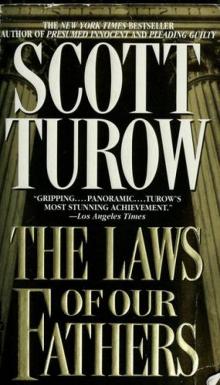 The Laws of Our Fathers
The Laws of Our Fathers Ordinary Heroes
Ordinary Heroes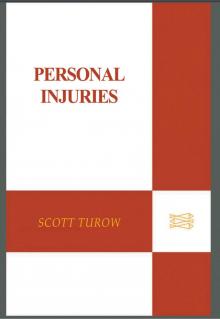 Personal Injuries
Personal Injuries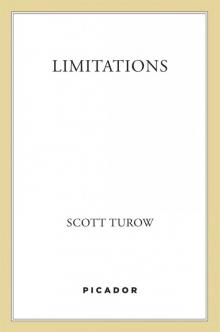 Limitations
Limitations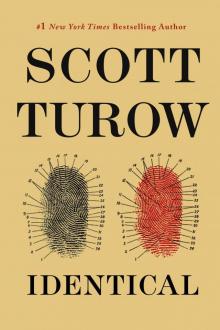 Identical
Identical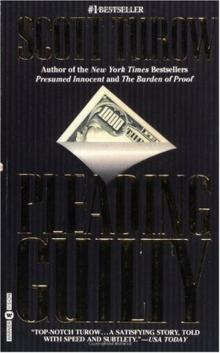 Pleading Guilty
Pleading Guilty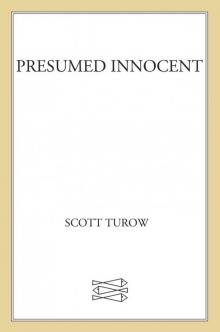 Presumed Innocent
Presumed Innocent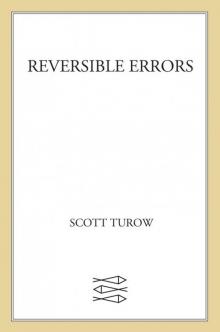 Reversible Errors
Reversible Errors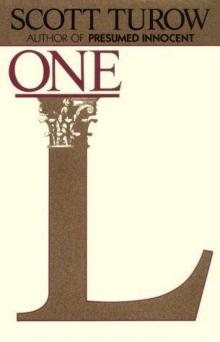 One L: The Turbulent True Story of a First Year at Harvard Law School
One L: The Turbulent True Story of a First Year at Harvard Law School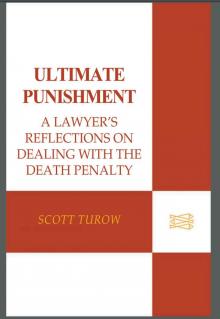 Ultimate Punishment
Ultimate Punishment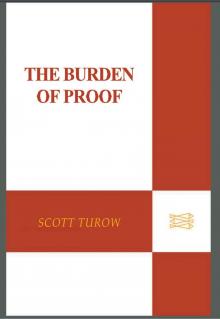 The Burden of Proof
The Burden of Proof Ordinary Heroes (2005)
Ordinary Heroes (2005)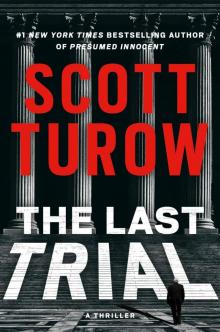 The Last Trial
The Last Trial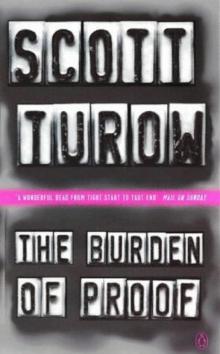 The Burden of Proof kc-2
The Burden of Proof kc-2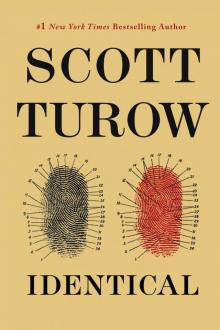 KC09 - Identical
KC09 - Identical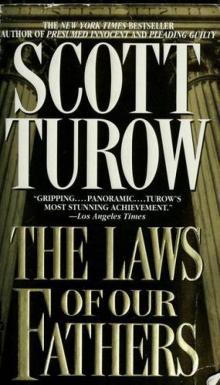 The Laws of our Fathers kc-4
The Laws of our Fathers kc-4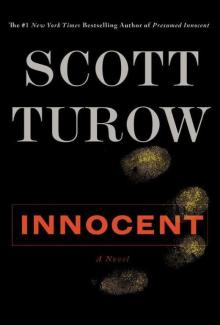 Innocent kc-8
Innocent kc-8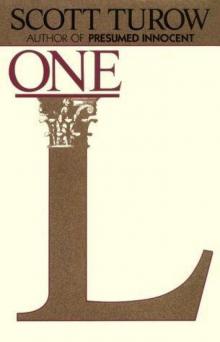 One L
One L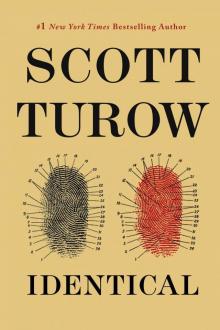 Identical kc-9
Identical kc-9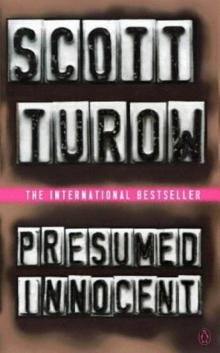 Presumed innocent kc-1
Presumed innocent kc-1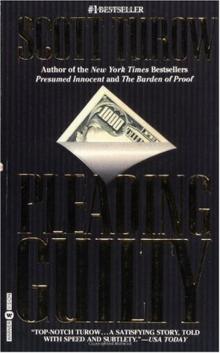 Pleading Guilty kc-3
Pleading Guilty kc-3 One L (1977)
One L (1977)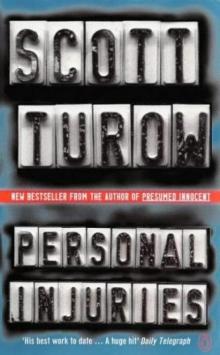 Personal injuries kc-5
Personal injuries kc-5